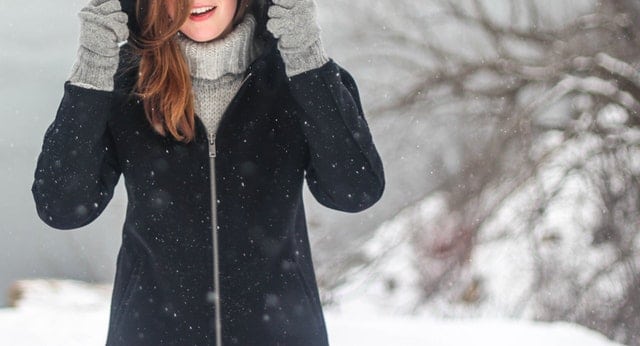Winter in Charleston may not be as brutal as in some parts of the country (we’re looking at you, Minnesota), but occasional cold spells can mean trouble for people with hearing aids. In order to keep them functioning properly all winter long, we’ve got some tips for you.
The Hazards of Cold and Moisture

Any high-tech electronic device is going to be susceptible to temperature extremes, and hearing aids are no exception. During the winter months, cold weather can sap the batteries quickly and condensation can cause a short circuit (or worse).
With holiday receipts piling up this time of year faster than snow in Duluth (we have nothing against Minnesotans, we swear), we’re guessing you’re not too keen on paying out-of-pocket for a potentially costly hearing aid repair. To keep you in the black, your Charleston audiologist recommends the following care tips for your hearing aids during the winter.
How can you protect your hearing aid from winter weather?
-
Protect your devices from the cold
Cold temperatures can quickly deplete hearing aid batteries. Cover them up with a warm hat, scarf, earmuffs or stocking cap when wearing them outdoors, and avoid leaving them in a cold car or near a drafty window.
If you’re going skiing, snowboarding, skating, or participating in another winter sports activity, you might be better off removing them temporarily and keeping them in a safe place until you are finished. If you’re traveling out of town over the holidays, pack lots of extra batteries—especially if you’re going someplace cold. Like Minnesota. (We’ll stop now, we swear.)
-
Prevent moisture from damaging hearing aids
Moisture and electronics don’t mix.
Period. Even if it’s cold outside, any type of vigorous physical activity can still cause you to perspire. Keep sweat away from your hearing aids by wearing a moisture-wicking hat or a hearing aid sweatband for behind-the-ear devices. Condensation poses similar hazards; the heat your body generates outdoors condenses into moisture when you go back inside, enough to potentially damage your hearing aids.
Take them out as soon as you return indoors and wipe them down with a soft cloth to get rid of moisture. Keep the battery compartment open overnight to allow them to ventilate, and use a dehumidifier to prevent moisture buildup if you have one.
-
Miscellaneous
In addition to the above, if your hearing aids do become wet, don’t try drying them off by placing them near a heating source or using a hair dryer; these might cause your devices to melt.
Make sure you have a ready supply of batteries on hand to offset unanticipated shortages, and if you are the extremely active outdoorsy type, you might want to think about buying water-resistant hearing aids for peace of mind.
To learn more about caring for your hearing aids during the cold winter months, give a Charleston audiologist a call.
Learn about Hearing Aids:
Our NE South Carolina Area Audiologists Office Locations
Moncks Corner
5000 Epson Plantation Dr
Moncks Corner, SC 29461
(843) 761-5690
Windmill Station
2005 2nd Avenue
Summerville, SC 29486
(843) 576-2604
